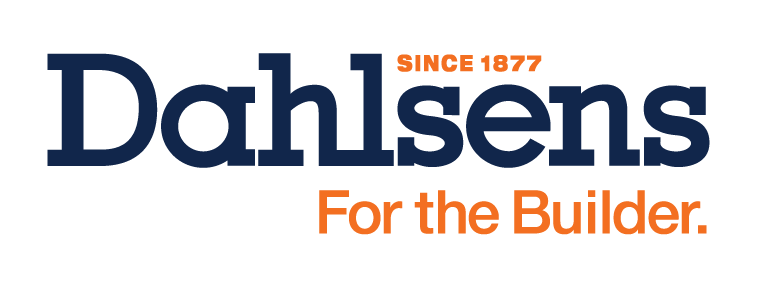If you want to go fast, go alone; if you want to go far, go together. Great teams are built from great leadership. We asked a Dahlsens partner, Leading Teams – Australia’s most respected experts in the culture and leadership space – to provide practical advice on how to build a team that delivers to the standards you need to build your business.
Leadership – set the tone
As the director or manager of a business, it’s important to understand your role within the team. While many leaders in building companies first began their careers on the tools, the skills required to be an effective leader of a diverse building team are not the same as the technical skills required to build a building. Just as a child who goes to school for 13 years can’t walk into the role of teacher without years of training, there are new skills to be learnt to be successful in managing a team.
To keep it simple, leaders need to be role models for their teams. By definition, a leader is someone who is followed by others. The actions a leader takes will be replicated by their followers. If you want your team to show up on time, it is important that you set the tone, lead by example and be punctual yourself, every time. If you want your team to work cooperatively, you need to be committed to working cooperatively with your team. Take some time to consider your own work behaviours. What’s good for the boss probably translates as being acceptable for the team too.
Purpose – what are we trying to do?
Every member of your team needs to understand the purpose of your business, and what their role is to help fulfill that purpose. Your purpose might be to ‘build homes to the same workmanship standards we would build for ourselves’ or ‘give our clients an experience so good, they will want to do it all again’… or whatever it is that you are trying to achieve.
You should aim to ensure that every team member understands how they help deliver on the purpose so that when they are asked by others ‘What do you do at work?’, their first response is ‘I coordinate the construction of our clients’ homes as though they are homes I will move into’, or ‘I am the main contact for the client during the build and give them such a good experience, they will want to do it all again with us’, rather than a statement like ‘I work as the site supervisor’ or ‘I talk to the clients’.
This connection to your purpose, if clear and aspirational, will drive your team to look beyond their day-to-day tasks and help them understand they are part of something larger. Consider the difference between these two requests to your office person:
- I need you to turn up each day, answer the phones and do whatever is thrown at you.
- Your role is the go-to contact with our clients. I’ll make sure you’ll be kept in the loop by the team, at every stage, so you are able to be proactive in keeping the clients well-informed and happy throughout their build. Your role is key to our clients having the type of experience that makes them return to build with us again.
Relationships – the key to a culture that works
Think about the last time you really needed some help from someone. For something important outside of work. Who did you turn to? No doubt that person was probably someone you knew you could trust.
Strong relationships are one of the main drivers of a successful culture. Building good relationships takes time, and every relationship evolves and grows uniquely. Investing the time to develop these relationships so they can be relied upon in times when you need them is time well spent. If the COVID pandemic has taught us anything, it is that strong relationships count.
Strong and trusted relationships can enable you to have genuine conversations, even when those conversations are challenging. If you have a good relationship with a team member who keeps arriving late to work, you’ll find it easier to challenge them about this behaviour. On the flip side, when somebody you know well praises you, the impact of that feedback stands out.
Values and behaviours – a framework for expectations
Many businesses go about creating a set of values and/or behaviours and put them up on a wall or on their website. How many go to lengths to educate and inspire the team to get on board and live these values? When a company defines its values and actively works on empowering the team to live and act by these values, the culture of the business can unite.
If your company values and/or behaviours are actively understood and lived by your team, you may find it easier to resolve issues. For example, if one of your behaviours is ‘we are professional, we show up on time’ and your team agrees with and understands this, paired with your strong relationships, you are in the position to call out both good and poor examples when you see them.
Feedback – the ultimate tool to improvement
Each of the elements discussed above, when working together, help to create an environment of safety for the team to provide feedback to each other. When everyone in your team sees their leaders acting in line with their values, when the team is engaged in a wider purpose, when they have strong relationships and clear guidelines for behaviour, your leadership creates an environment which empowers conversations of all kinds, driving your performance.
This safe environment allows all members of the team to take ownership of the results and improvements. You want your team to own the culture so that you are not having to supervise and micromanage. It is often said that culture is what happens when the boss isn’t around.
About Leading Teams
Leading Teams Australia (LTA) was established in 1993 to improve the performance of teams and leaders. The company uses a unique training methodology called the Performance Improvement Program, which was developed in-house.
The model aligns teams by generating ownership of shared behaviours that empower all team members to engage in honest and constructive dialogue to improve team performance. It applies to all teams from corporations to elite sport, community groups and schools. LTA clients include: TAFE Queensland, Petstock, Sydney Swans FC, Port Adelaide FC, Essential Energy, Bond University, Probuild and Hydro Tasmania.
Click here to learn more about Leading Teams.



